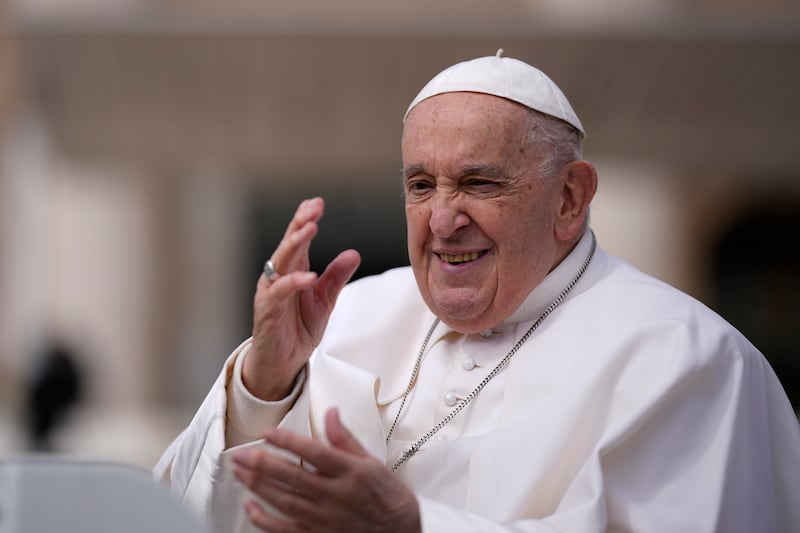In 2015 Pope Francis published the second encyclical of his pontificate. Called Laudato Si' and with the subtitle "On care for our common home", the document was a call to action to respond to the "cry of the Earth" as well as the "cry of the poor".
The Pope's analysis was highly critical of the effects of consumerism and our stewardship of the planet, railing against everything from global inequality and how rich countries used the indebtedness of poorer nations to control them to how nature's resources are abused "solely as a source of profit and gain" and the urgency of reducing reliance on fossil fuels.
Now he has released an apostolic exhortation that might be regarded as a follow-up to the influential Laudato Si'. Laudate Deum (Praise God) has a narrower focus, as is made clear by its subtitle: "To all people of good will on the climate crisis."
The 86-year-old Pope notes that "eight years have passed" since the publication of Laudato Si': "Yet, with the passage of time, I have realised that our responses have not been adequate, while the world in which we live is collapsing and may be nearing the breaking point.
"In addition to this possibility, it is indubitable that the impact of climate change will increasingly prejudice the lives and families of many persons. We will feel its effects in the areas of healthcare, sources of employment, access to resources, housing, forced migrations, etc."
He continues: "Climate change is one of the principal challenges facing society and the global community. The effects of climate change are borne by the most vulnerable people, whether at home or around the world..."
The document has an almost impatient tone, as the Pope sets about rebutting those who seek to argue that humans aren't influencing climate change. For example: "In order to ridicule those who speak of global warming, it is pointed out that intermittent periods of extreme cold regularly occur.
"One fails to mention that this and other extraordinary symptoms are nothing but diverse alternative expressions of the same cause: the global imbalance that is provoking the warming of the planet.
"Droughts and floods, the dried-up lakes, communities swept away by seaquakes and flooding ultimately have the same origin..."
Later, he suggests that the root cause of our activities which ultimately lead to climate change is the acquisitive, human mindset: "Without a doubt, the natural resources required by technology, such as lithium, silicon and so many others, are not unlimited, yet the greater problem is the ideology underlying an obsession: to increase human power beyond anything imaginable, before which non-human reality is a mere resource at its disposal."
Some might be led to observer that a more blunt description of the desire to "increase human power" might simply be 'sin'. In this vein, in the last line of Laudate Deum the Pope writes: "Praise God is the title of this letter. For when human beings claim to take God’s place, they become their own worst enemies."
There are notes of hope, though. "Every little bit helps, and avoiding an increase of a tenth of a degree in the global temperature would already suffice to alleviate some suffering for many people," notes Pope Francis.
"Yet what is important is something less quantitative: the need to realise that there are no lasting changes without cultural changes, without a maturing of lifestyles and convictions within societies, and there are no cultural changes without personal changes."
He praises efforts by households "to reduce pollution and waste, and to consume with prudence" which are "are creating a new culture".
Laudate Deum was published on October 4 – the same date as Laudato Si', to coincide with the Feast of St Francis of Assisi, who is so indelibly associated with nature.
October 4 also marked the opening in the Vatican of the Synod on Synodality, the latest stage in a long-running process established by Francis with the stated aim – among other things – of giving lay people a greater say in the Church.
It's fair to say that the Synod has generated both hype and hope; there are those who would like to see it lead to a more liberal Catholic Church, while others fear traditional doctrine will be diluted.
The Synod has a little over two weeks to run. Whatever happens – and it's important to remember there is a long way to go on the Synod journey – it will be a defining moment of Francis's papacy and legacy.






